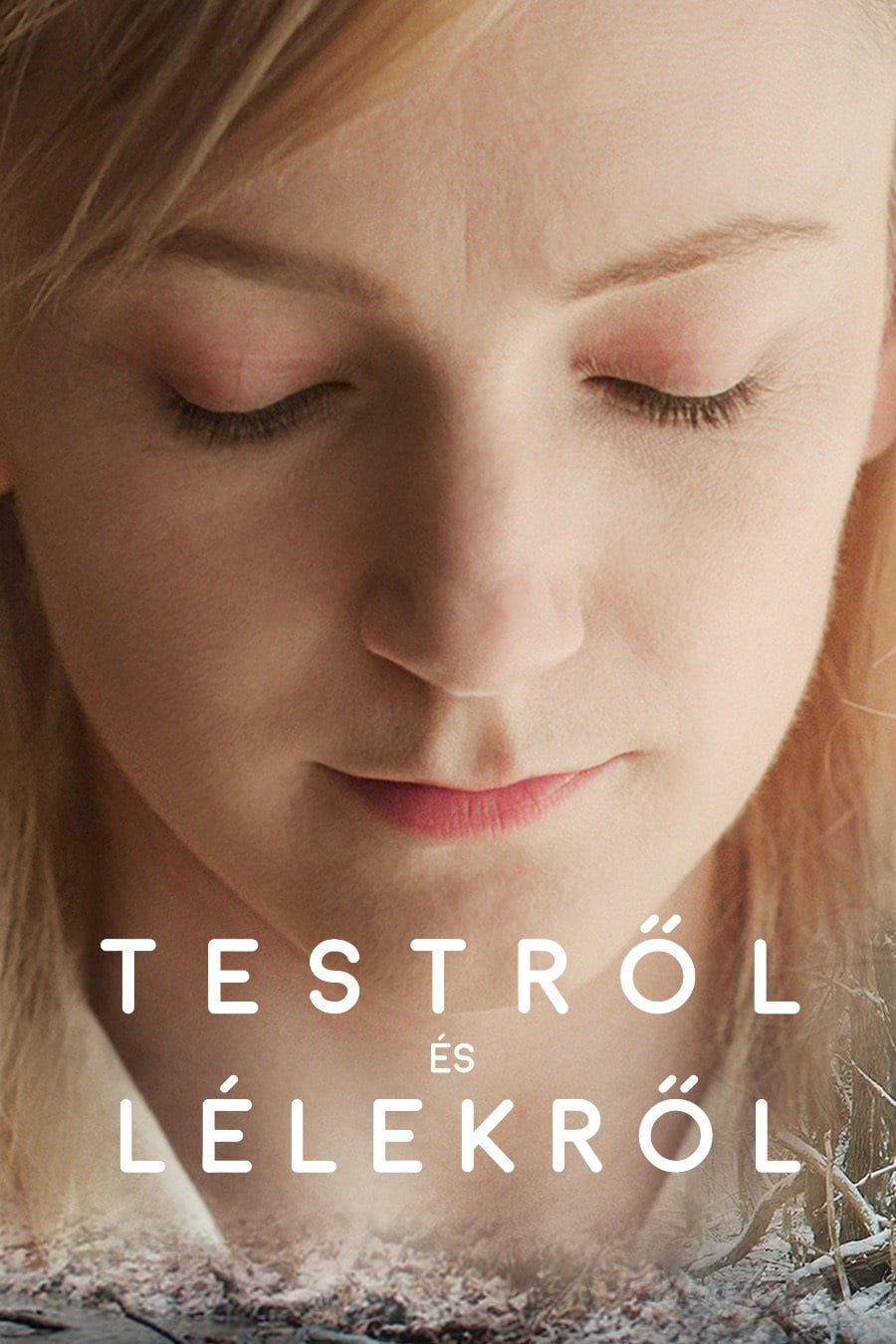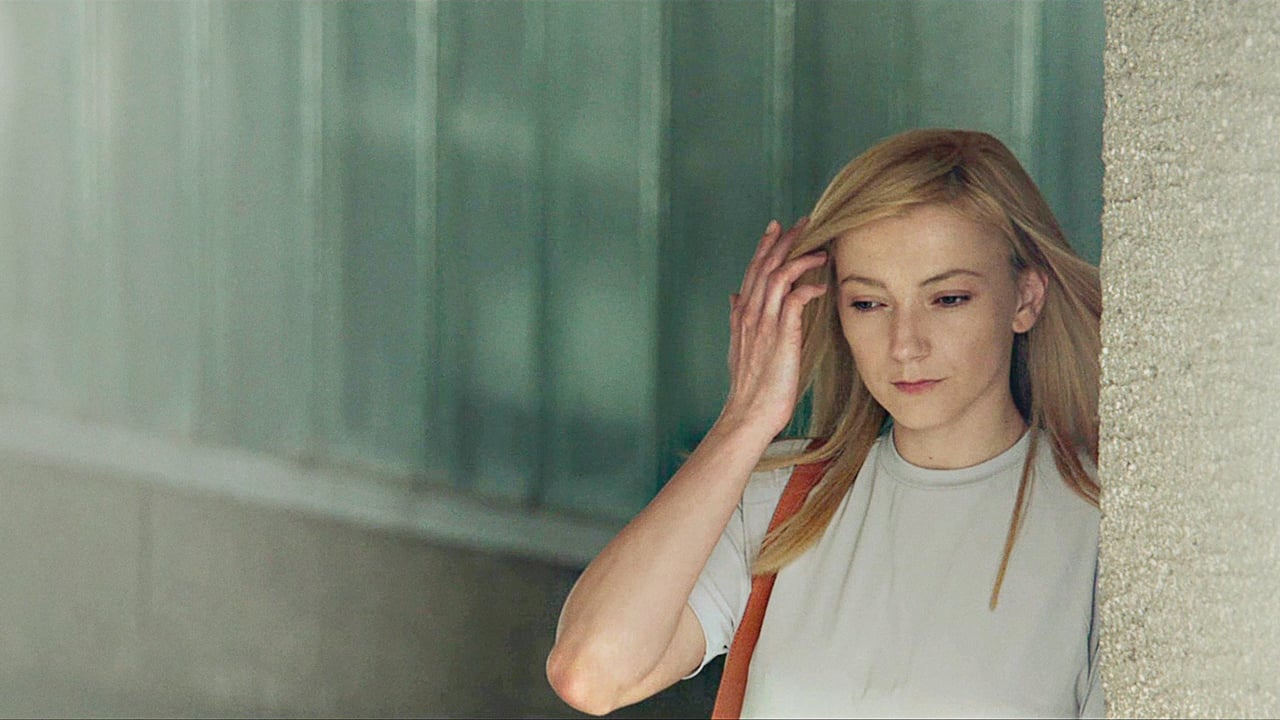
Deerly beloved
The opening scene of On Body and Soul - winner of the Golden Bear at the 2017 Berlin International Film Festival, and the tenth Hungarian film to be nominated for the Academy Award for Best Foreign Language Film - is so unbelievably damn good that it makes one want to root for the whole movie even if the whole movie is itself not quite deserving of it. There is a forest, deep in a hazy blue dusk that seems to emanate from the soft blanket of snow covering the ground. Two deer wander through the forest, and in a feat of unbelievably good framing and editing, they appear to commune in some unspoken exchange of glances and meaningfully expressive poses, exuding some kind of deep connection and mutual knowledge that is communicated at a level which cannot truly express itself to we humans in the audience. It feels dreamy, because it is a dream, as we'll learn almost immediately; but there is a weirdly concrete, visually precise quality to that dream that recalls the famous story of Zhuangzi the philosopher, who questioned if he was a man dreaming of being a butterfly, or a butterfly dreaming of being a man. The question On Body and Soul explicitly raises is decidedly not whether these are two people dreaming of being deer, or two deer dreaming of being people, and yet that's also not a question that the film forbids, or even discourages.
Anyway, the barnburner of an opening leads straight to an equally audacious plot hook. In a slaughterhouse somewhere left unspecified (just outside Budapest seems to be a reasonable guess), there works a puffy-faced manager, Endre (Morcsányi Géza, a theater professional and professor making his film debut), who is pleasant enough in the smarmy way of a boss. There is also a quality inspector, Mária (Borbély Alexandra), who has just recently come on to replace a much-beloved predecessor who is taking time off to have her baby. Mária is apparently somewhere on the autism spectrum that allows her to be supremely good at her job, and with no ability whatsoever to connect emotionally with other humans, which apparently causes her a small amount of distress. A large part of the two-hour movie simply plays these characters out against the close-knit community of the slaughterhouse (including a not-very-long but incredibly explicit sequence that depicts the steps in killing and butchering a cow). Then along comes the dramatic shift: a routine psychological exam reveals, quite inadvertently, that Endre and Mária are both dreaming that very same deer dream, each occupying the role of one of the animals. And despite their substantial age difference and the mildly antagonistic relationship between them at work, this singular shared experience leads them to try to forge some kind of personal connection: a romantic one, a sexual one, or just one of mutual human understanding.
That's basically it - "basically", like European-style realist dramas about people who share aesthetically vivid dreams of being deer in a haunting snowscape are thick on the ground - and if there is one thing that niggles about On Body and Soul, it's that it ends up being more or less exactly the movie it sounds like. And European-style realist dramas about sad-sack people with prickly personalities struggling to form romantic connections are pretty thick on the ground. Mária is a distinctive enough character, and Borbély plays her with such commitment and absolutely no easy appeals to the audience, that the film gains at least that much of its own unique interest.
Still, it's a movie that needs that fucking great opening scene, and that doozy of a scenario, because it sort of does end up at "so, is that all?" But I am perhaps being a little pissy. Yes, that is all, but it's still quite a bit in the hands of writer-director Enyedi Ildikó, making her first feature in the 18 years since 1999's Simon, the Magician (itself the capstone to a ten-year period of activity following her adored 1989 breakthrough, My 20th Century). Enyedi's directorial hand is gentle but certain, appearing to be somewhat invisible in terms of compositions and settings, right up until you start thinking about the vagaries of tone and emphasis. It is, after all, a very damn peculiar movie, one that could easily shade either into a delicate magical realism (which would have been good) or dour absurdity (which might have been good, though I doubt it). Instead, Enyedi's approach is to turn the real world itself into a somewhat hazy reflection of the character's dreams, with the fuzzy shadows and brownish-greys of the slaughterhouse feeling both distinct and abstract in about the same way the woods do.
It is, fundamentally, a character study, and directed with a kind of squared-off sensibility to reflect that. The central problem, not one that the film is much interested in obscuring or hiding, is that the two leads are much happier in their skins and minds (or in their bodies and souls, if you prefer to be extra-explicit about it) when they are phantom deer, and everything about the film's pitch-perfect tone derives from that. The sense of everywhere-and-nowhere-ness in the "real world" settings, and the refusal to do much to sensationalise the central gimmick (it is presented as the most matter-of-fact thing imaginable, and never given the remotest explanation) are both pointed in the same direction, creating a simple, unexceptionally sad tale of two people who are having a difficult time, and exploring why their defensive, uncertain feints at love are just going to make it more difficult.
The result is an enormously satisfying tale of two humans, brought to life by two exemplary performances (Borbély is easily the more affective and impressive of the two, with a more sympathetic part to play; Morcsányi is still quite excellent, playing a bit of a self-centered lout, but the kind who has never had reason to understand his own loutishness & thus never needed to confront it). It's just that it goes no place unexpected. Is that a problem, necessarily? Maybe a little bit, at the end (the film pulls something of a cheap fake-out ending that I appreciated; the ending it looks like it was building to would have been more honest but also more pointless). Meanwhile, it presents a very lovely, thorny, and at times openly nauseating snapshot of a place and community that are both specific and wholly generic. It is a film that captures something special about being a soul trapped inside a body that sometimes gets in the way of being emotionally complete - nothing new, but something very special indeed.
Anyway, the barnburner of an opening leads straight to an equally audacious plot hook. In a slaughterhouse somewhere left unspecified (just outside Budapest seems to be a reasonable guess), there works a puffy-faced manager, Endre (Morcsányi Géza, a theater professional and professor making his film debut), who is pleasant enough in the smarmy way of a boss. There is also a quality inspector, Mária (Borbély Alexandra), who has just recently come on to replace a much-beloved predecessor who is taking time off to have her baby. Mária is apparently somewhere on the autism spectrum that allows her to be supremely good at her job, and with no ability whatsoever to connect emotionally with other humans, which apparently causes her a small amount of distress. A large part of the two-hour movie simply plays these characters out against the close-knit community of the slaughterhouse (including a not-very-long but incredibly explicit sequence that depicts the steps in killing and butchering a cow). Then along comes the dramatic shift: a routine psychological exam reveals, quite inadvertently, that Endre and Mária are both dreaming that very same deer dream, each occupying the role of one of the animals. And despite their substantial age difference and the mildly antagonistic relationship between them at work, this singular shared experience leads them to try to forge some kind of personal connection: a romantic one, a sexual one, or just one of mutual human understanding.
That's basically it - "basically", like European-style realist dramas about people who share aesthetically vivid dreams of being deer in a haunting snowscape are thick on the ground - and if there is one thing that niggles about On Body and Soul, it's that it ends up being more or less exactly the movie it sounds like. And European-style realist dramas about sad-sack people with prickly personalities struggling to form romantic connections are pretty thick on the ground. Mária is a distinctive enough character, and Borbély plays her with such commitment and absolutely no easy appeals to the audience, that the film gains at least that much of its own unique interest.
Still, it's a movie that needs that fucking great opening scene, and that doozy of a scenario, because it sort of does end up at "so, is that all?" But I am perhaps being a little pissy. Yes, that is all, but it's still quite a bit in the hands of writer-director Enyedi Ildikó, making her first feature in the 18 years since 1999's Simon, the Magician (itself the capstone to a ten-year period of activity following her adored 1989 breakthrough, My 20th Century). Enyedi's directorial hand is gentle but certain, appearing to be somewhat invisible in terms of compositions and settings, right up until you start thinking about the vagaries of tone and emphasis. It is, after all, a very damn peculiar movie, one that could easily shade either into a delicate magical realism (which would have been good) or dour absurdity (which might have been good, though I doubt it). Instead, Enyedi's approach is to turn the real world itself into a somewhat hazy reflection of the character's dreams, with the fuzzy shadows and brownish-greys of the slaughterhouse feeling both distinct and abstract in about the same way the woods do.
It is, fundamentally, a character study, and directed with a kind of squared-off sensibility to reflect that. The central problem, not one that the film is much interested in obscuring or hiding, is that the two leads are much happier in their skins and minds (or in their bodies and souls, if you prefer to be extra-explicit about it) when they are phantom deer, and everything about the film's pitch-perfect tone derives from that. The sense of everywhere-and-nowhere-ness in the "real world" settings, and the refusal to do much to sensationalise the central gimmick (it is presented as the most matter-of-fact thing imaginable, and never given the remotest explanation) are both pointed in the same direction, creating a simple, unexceptionally sad tale of two people who are having a difficult time, and exploring why their defensive, uncertain feints at love are just going to make it more difficult.
The result is an enormously satisfying tale of two humans, brought to life by two exemplary performances (Borbély is easily the more affective and impressive of the two, with a more sympathetic part to play; Morcsányi is still quite excellent, playing a bit of a self-centered lout, but the kind who has never had reason to understand his own loutishness & thus never needed to confront it). It's just that it goes no place unexpected. Is that a problem, necessarily? Maybe a little bit, at the end (the film pulls something of a cheap fake-out ending that I appreciated; the ending it looks like it was building to would have been more honest but also more pointless). Meanwhile, it presents a very lovely, thorny, and at times openly nauseating snapshot of a place and community that are both specific and wholly generic. It is a film that captures something special about being a soul trapped inside a body that sometimes gets in the way of being emotionally complete - nothing new, but something very special indeed.
Categories: hungarian cinema, love stories






